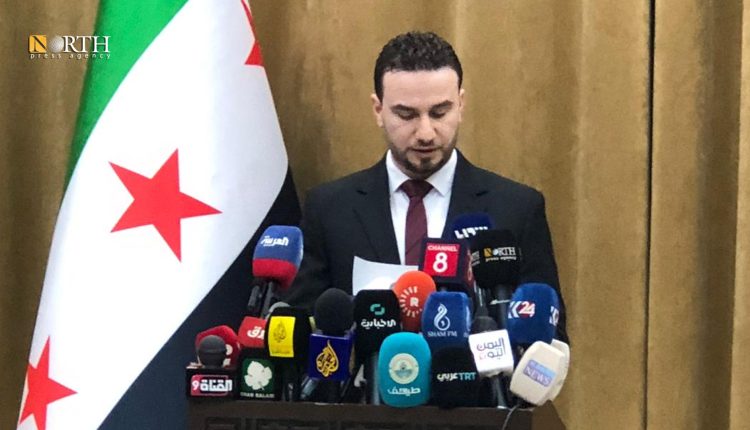Syrian Interim Government Announces Structural Overhaul of Interior Ministry
By Kardo Roj
DAMASCUS, Syria (North Press) – The Syrian Interim Government announced sweeping organizational reforms to its Ministry of Interior on Saturday, signaling a broad administrative restructuring aimed at modernizing internal security and public service institutions.
During a press conference in Damascus, Interior Ministry spokesperson Nour al-Din al-Baba outlined the key features of the new administrative structure, which was formally approved by the presidency earlier this week. The reforms will be implemented gradually over the coming period.
Among the most significant changes is the merger of the police and public security bodies into a single entity under the new title “Provincial Internal Security Command.” Each province will have its own commander representing the Interior Minister and overseeing several directorates within its geographical jurisdiction.
Al-Baba noted that the reforms also include a major overhaul of civil affairs administration. Efforts are underway to digitize citizen services, streamline bureaucratic procedures, and introduce biometric identity cards. He acknowledged challenges due to outdated infrastructure and the legacy of inefficient systems.
The Ministry has also introduced new departments aimed at improving transparency and accountability, including five central complaint offices and a forthcoming mobile application for public grievances.
In an effort to address growing cyber threats, several specialized departments were established, including those for telecommunications, cybersecurity, and data protection. These units are tasked with safeguarding the Ministry’s digital infrastructure and protecting citizens’ private information.
A new Department for Prisons and Rehabilitation has been created to align detention practices with international human rights standards. According to the Ministry’s statement, the goal is to ensure that prisons serve rehabilitative functions and uphold the dignity of detainees.
In a move to distance the ministry from controversial past practices, the term “Criminal Security” was officially replaced with “Criminal Investigation Directorate,” which will also oversee cases related to cybercrime and online extortion.
The government also reinforced its anti-narcotics strategy, citing the need to counter the country’s reputation as a major producer of illegal drugs. New addiction treatment centers will be launched in collaboration with the Ministry of Health.
Al-Baba also revealed plans to reform the traffic directorate through smart city technologies, aiming to reduce corruption and improve efficiency in traffic enforcement.
To support Syria’s tourism sector, a new “Tourism Police” unit has been introduced to protect tourist sites and visitors. Officers in this unit will receive training in foreign languages and intercultural communication.
Additionally, the Ministry has launched departments dedicated to combating human trafficking, securing national borders, and safeguarding transportation routes. These steps, officials say, are part of broader efforts to address regional instability and align with evolving security demands.
The newly formed departments are expected to begin phased operations soon, with further announcements anticipated from the Ministry in the coming weeks.

